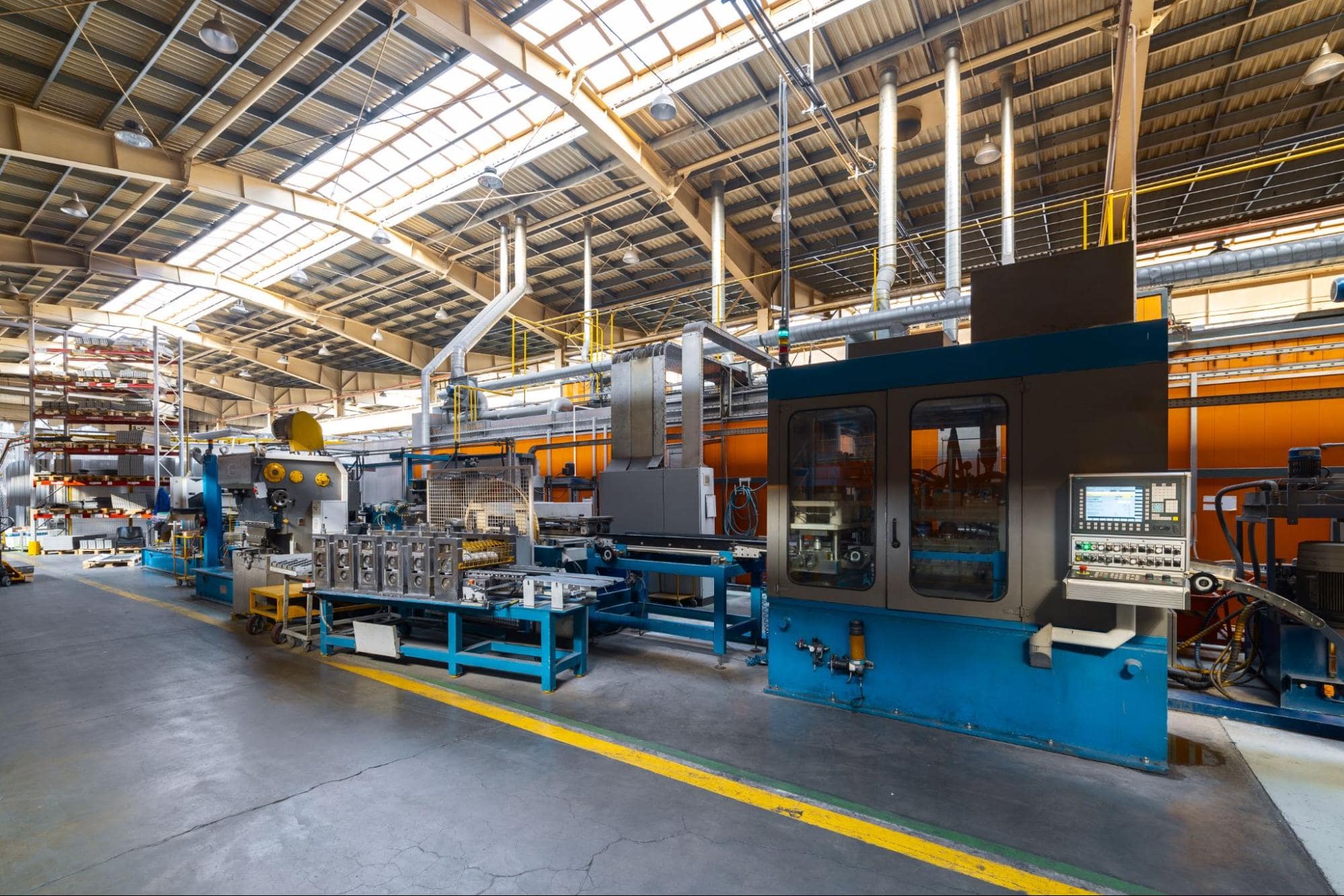If you own a machine shop and are considering selling your business, you might wonder how to do this correctly in an ever-evolving market. According to Canadian Industry Statistics, the machine shop industry boasts an average revenue of over $800,000, with an impressive 76.1% profitability rate. These figures are promising for attracting potential buyers — the exact outcome you need for a successful sale. In this guide, we’ll discuss how to sell a machine shop to maximize value while ensuring the longevity of your business long after the ownership transfer.
Key Takeaways
- Determining the value of your machine shop considers multiple factors, including financial performance, equipment condition, personnel, client base, brand image, growth potential, and overall industry trends.
- To increase the value of your business before selling, you can optimize your operations, upgrade your infrastructure, and diversify your customer base.
- Enlisting a business broker’s help can facilitate a smooth selling process, from putting your business up on the market to advertising and closing a deal.
Table of Contents
Valuing Your Machine Shop
One of the most crucial steps in the selling process is accurately determining value. Properly valuing your business is essential to attract potential buyers, negotiate a fair price, and ensure a successful sale. However, valuing a machine shop is no simple task; it requires a comprehensive look at various factors, including:
1. Financial Performance
Prospective buyers want to see clear and organized financial records, including statements, balance sheets and cash flow information. Ideally, these documents should cover the past three to five years, offering a comprehensive overview of your business’s financial health.
2. Machinery and Equipment
The core of your machine shop’s value lies in its machinery and equipment. These tangible assets are essential for operations and significantly impact your company’s overall worth. Some factors to consider include:
- Condition and age: Well-maintained and up-to-date assets generally increase the value of your business.
- Replacement cost: Understanding the cost of replacing damaged equipment helps buyers assess the investment required to maintain or upgrade the shop.
- Unique or specialized equipment: If your machine shop possesses distinctive equipment that sets it apart, it can add a competitive edge.
3. Intangible Assets and Contracts
Intangible assets include the following:
- Intellectual Property: Identify any patents, trademarks, or trade secrets your machine shop holds. These can add substantial value, providing an upper hand in the market.
- Contracts and agreements: Long-term contracts with clients or suppliers can indicate stability and predictability for your machine shop’s future income, making it a more attractive investment.
4. Industry and Market Analysis
Market conditions and industry trends influence the value of your machine shop. For example:
- The latest developments in the machine shop industry can help you better gauge your business’ value. Are your services in demand? Are your operations aligned with the newest technologies and practices?
- If you offer unique selling propositions, such as specialized skills or a solid customer base, this can set you apart from competitors and positively influence your valuation.
- When evaluating your client base, keep in mind that a machine shop with a broad, diversified, and dedicated customer portfolio is more appealing because it reduces the risk associated with relying heavily on a few clients.
- Looking at the value of competitor businesses of the same size can give you a ballpark estimate of how much yours is worth.
5. Growth Potential
Your machine shop holds more value if buyers see growth potential beyond its current state. To understand the future outlook of your business, identify growth areas within the machine shop industry and demonstrate how you can capitalize on them. It’s also important to consider the scalability and diversification potential of your operations. This will attract buyers seeking expansion opportunities.

Business Valuation: What’s Your Business Worth? ...

Factors that Affect the Price of a Machine Shop
In addition to the factors above, here are some other areas that may affect your selling price:
Owner Involvement
The level of owner involvement in day-to-day operations can influence the price of a machine shop. If you play a crucial role in running the business and handling key responsibilities, there may be concerns about how operations will perform after the ownership transition.
Personnel
A skilled and motivated workforce committed to the success of your business adds value by ensuring seamless operations, maintaining customer relationships, and upholding the company’s reputation. In most cases, buyers appreciate a company with experienced and loyal employees, as it reduces the risk of disruptions during ownership transfer.
Brand
A strong and reputable brand impacts the price of your machine shop because it instills confidence in prospective buyers. Well-known and respected brands often have a loyal customer base, offering a competitive advantage and promising potential for recurring revenue.
Pro Tip
Invest in employee training and development. A knowledgeable and dedicated team can increase efficiency and deliver higher-quality products and services. Demonstrating a well-trained workforce showcases your commitment to excellence, which prospective buyers appreciate.
Promoting Your Machine Shop for Sale
Once you’ve determined the value of your machine shop, the next crucial step is to advertise and promote its sale. Here are some tips to help you prepare an effective advertising strategy:
- Prepare a document that provides potential buyers with detailed insights into your machine shop’s operations, financial performance, market position and predicted growth. If possible, make it visually appealing with professional photographs.
- Enlist the services of a business broker. They have networks of prospective buyers and industry contacts, which can help expedite the selling process.
- Prioritize confidentiality. This is critical to safeguarding your machine shop’s reputation and protecting sensitive information.
- Be transparent and honest. Build trust with potential buyers by being upfront about both the strengths and weaknesses of your machine shop. Providing transparent and honest information fosters a smoother negotiation process and demonstrates your commitment to a fair and open transaction.
Types of Buyers
Understanding the different types of buyers in the machine shop market can help you tailor your selling approach and negotiations. Here are some buyer profiles you may encounter:
- Individual Entrepreneurs: These buyers often look for businesses to run independently and have the skills and resources to manage daily operations.
- Strategic Buyers: Larger companies or competitors seeking synergies or market expansion by acquiring your machine shop.
- Private Equity Buyers: Those wanting to acquire a business to increase its value and sell for a profit.
Increasing Value
Implementing strategies to boost the value of your machine shop before putting it on the market can attract more buyers and command a higher selling price. Consider using the following strategies:
- Optimize your processes to improve efficiency and reduce costs.
- Invest in new technology to stay competitive.
- Expand your clientele to reduce customer concentration risks.
- Enhance your reputation and brand recognition with quality testimonials and customer-focused initiatives.
Should You Hire a Broker to Sell Your Machine Shop?
A reputable business broker like Sunbelt Canada can help you navigate the complexities of the selling process, find qualified buyers, and negotiate on your behalf. We have the industry knowledge, expertise, and networks to guide you to a smoother and more successful machine shop sale. Contact us today to get started.





